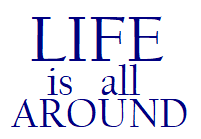Involvement and inclusion are interchangeable words you may often hear from volunteers, ecologists, and artists. Although there is no clear or agreed definition of involvement, this article attempts to explain and show why it can better our lives. At the same time, it debunks some common myths around involvement.
A key to well-being
Have you noticed what happens when you are joyful? Can you see any pattern? Take a moment to think of all your happy moments in the past week, month, or year. One thing that you can then observe is your willingness to accept and include everything around you. Let’s break this down.
When it comes to well-being, you have consciously or unconsciously set a few conditions. In other words, you dream of a specific future where you include a few things and exclude everything else. As a result, if what happens around you is part of your dream, you are happy. Given this observation, two factors can affect your happiness: your surroundings and your dream.
The conventional way to become happy is to strive to fulfill your dream. In this case, if you achieve your goals and your dream remains unchanged, you can sustain happiness. If, on the other hand, your expectations keep growing, as it usually happens, striving to fulfill an ever-changing dream could mean an endless pursuit of happiness.
Involvement can show a way out of this vicious circle. To be specific, when you include everything that happens around you as part of your dream, you are always happy. That is the sense and magic of involvement: It is a master key to well-being! A true Passepartout. Only when you hold this key can you open the “gift inside each moment”.
The myths around inclusion
Although involvement is mainly a word with positive meaning, there are still invalid claims or myths about inclusion. Here are three such common myths:
Myth 1: involvement supposedly brings entanglement
Correction: discriminatory involvement can entangle you
There is an argument that says involvement brings entanglement and, thus, suffering. Although there is an element of truth here, what entangles you is the discriminatory identity-based involvement.
In other words, if your involvement comes from a specific identification, such as your family, country, or anything else, there will be entanglement. If your involvement is beyond your identity, you will see that involvement brings happiness because you will include everything around you in the same way.
Myth 2: involvement supposedly demands fanaticism
Correction: indiscriminate involvement means having the same passion for everything in life
Another myth around inclusion is that it breeds fanaticism. This claim is valid only when your involvement comes out of your identity. In those cases, the mind tries to protect its character and personality. If you had nothing to safeguard, there would be no need for fanaticism or violence; you would enjoy life as it is.
You can be involved in something because you see it works for you, not necessarily because you believe it is correct. The moment you see that something works for you, you do not need to explain it. It just makes sense to do more, even if you do not understand it.
Myth 3: involvement supposedly demands action
Correction: Involvement is not an act; it is a certain willingness toward life
Some argue involvement means action. However, this is not necessary. For example, you can look at people and be involved. You can look at the sky or everything around you and include them as part of your life. Or, you can close your eyes and still be involved.
Involvement is not an act; it is a certain willingness toward life. You are willing to include everything around you as part of yourself. This willingness is the essence of indiscriminate involvement and hence a getaway to happiness.
Takeaway:
- If what happens around you agrees with your dream of well-being, you are happy.
- When you include everything that happens around you as part of your dream, you are always happy.
- You can be involved in something because you see it works for you, not necessarily because you believe it is correct.



